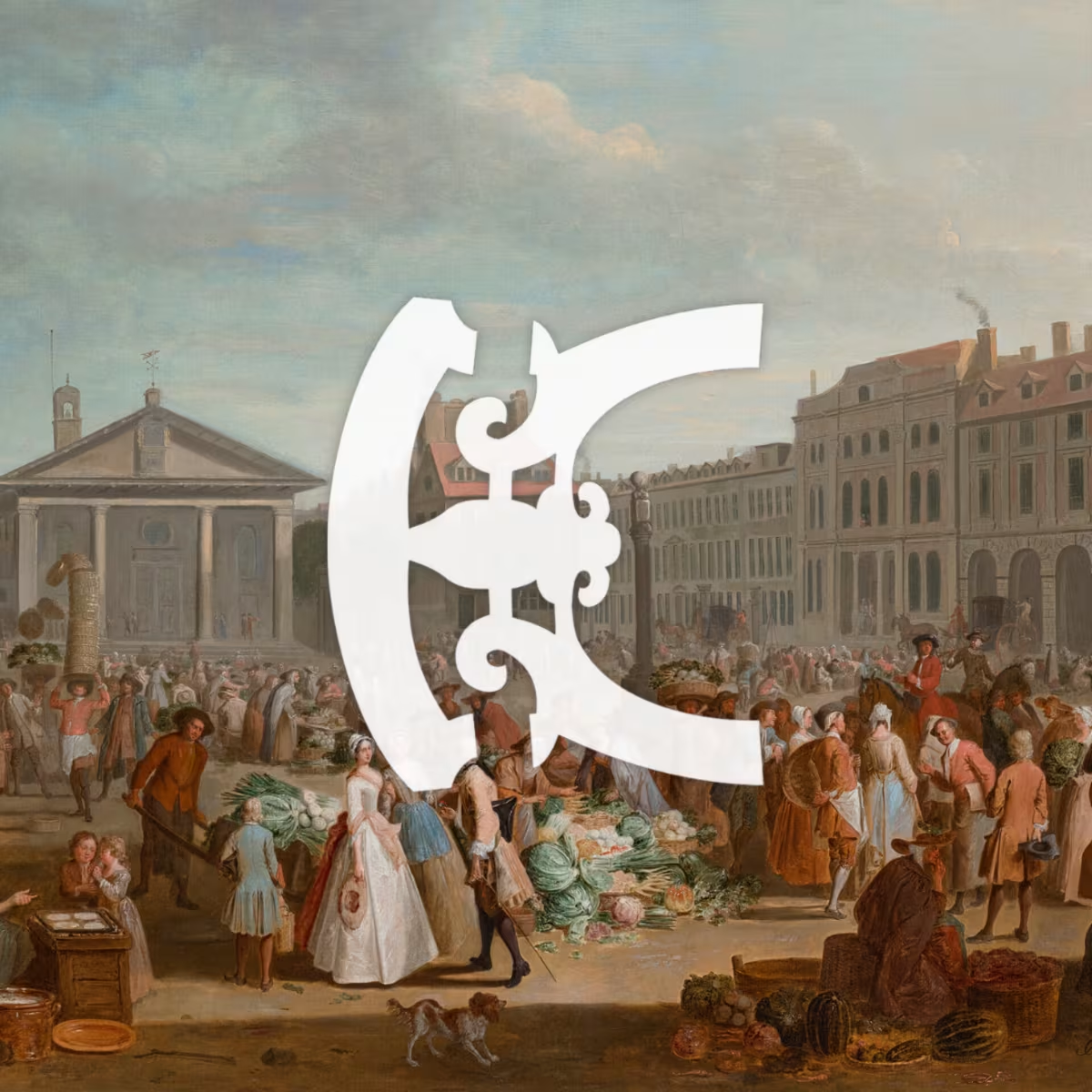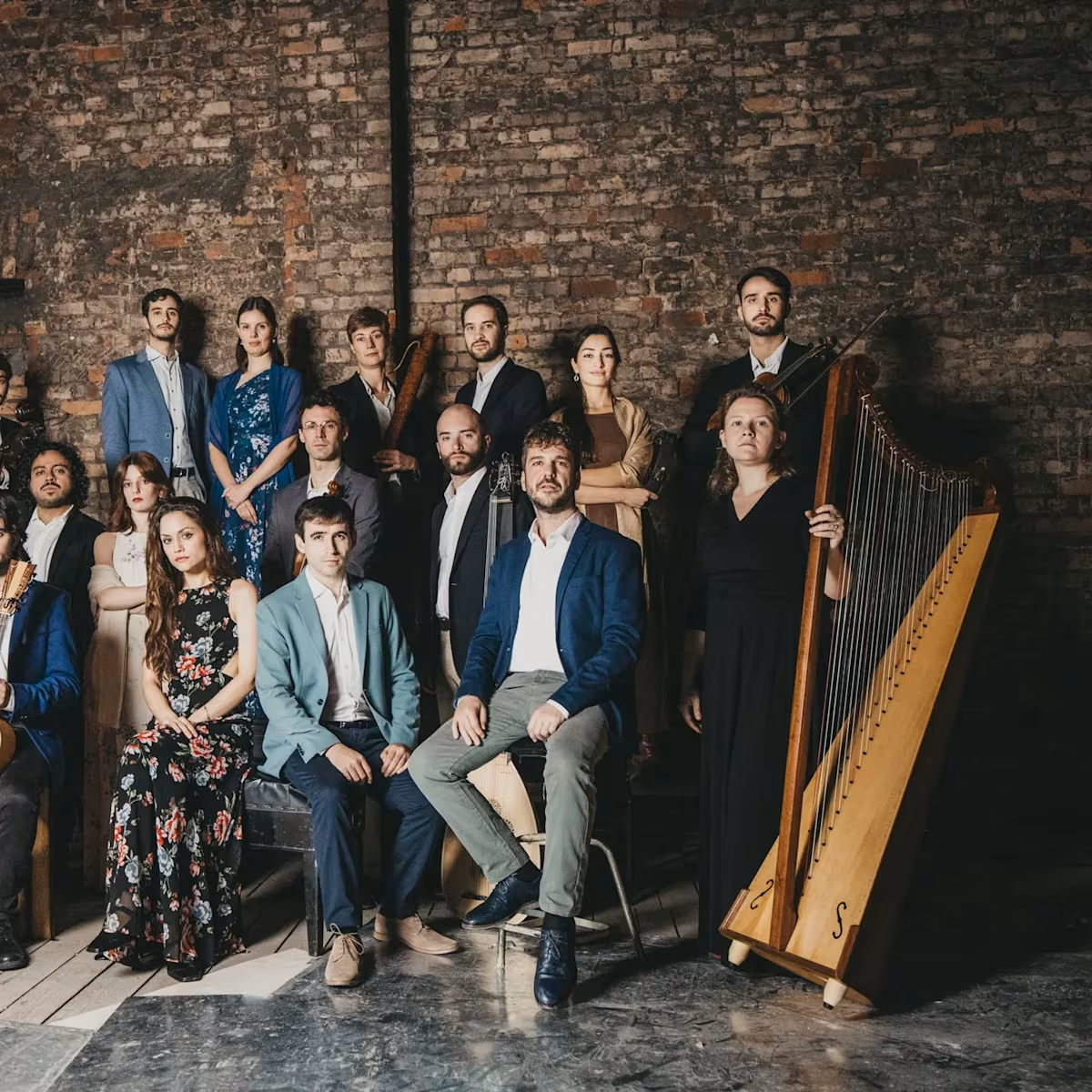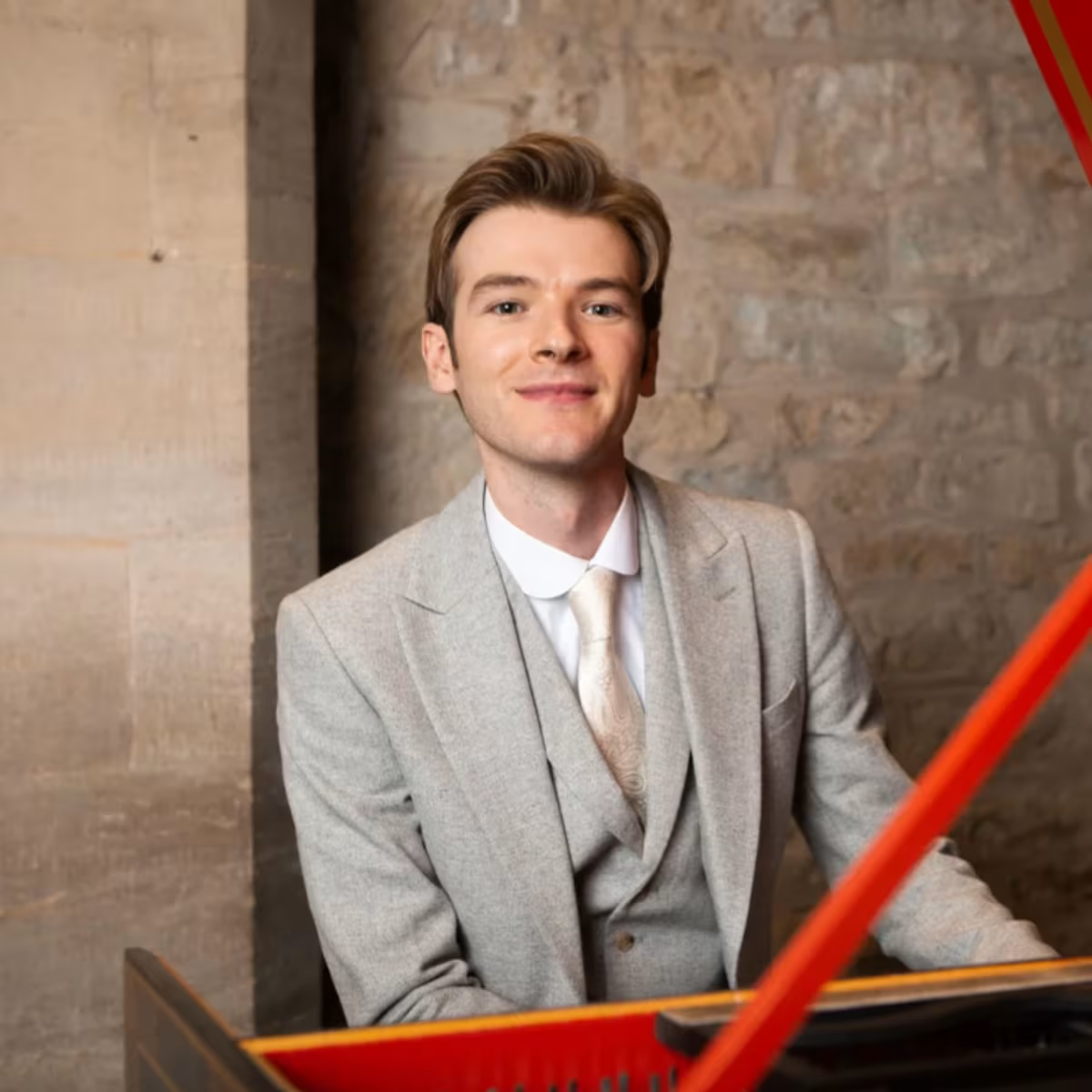Spotlight
In conversation: Edmund Taylor
Continuo Connect meets the violinist and musical director
Share this

FIRST PUBLISHED 04 AUG 2024
Edmund Taylor is a violinist specialising in historical performance, and the founder and director of the period ensemble Bellot Ensemble. The group focuses on 17th century Italian repertoire, often performing their own arrangements and divisions of vocal repertoire of this period. Bellot Ensemble will be performing at the Utrecht Early Music Festival in August, as well as recording their album Cupid’s Ground Bass together with singers Lucine Musaelian and Kieran White later in the year. This summer Edmund toured Purcell's The Fairy Queen with Armonico Consort, and joined them at the Royal Albert Hall in a performance of highlights from Carl Orff’s Carmina Burana with 2,500 young singers from 60 choirs across the UK, as part of their outreach programme.
What is your idea of perfect happiness?
Enjoying risotto and white wine in Venice, watching the boats go by!
What is your greatest fear?
I don't mind flying and I love climbing, but somehow I'm still absolutely terrified of heights. The London Eye is my idea of an absolute nightmare if that gives you an idea of the kind of heights which terrify me.
What is your superpower/superhero ability?
I think my patience has been a great help to me over the years. It’s something that certainly takes practice, but I believe the more space people have without feeling a great deal of pressure the more freedom they have to express themselves.
What non-musical hobbies or interests do you have?
As most freelancers will probably tell you, it's not always an easy balancing act to find time for hobbies, but when I do find the time, I love to go climbing! It’s both a problem-solving activity and a physical struggle at times, which is so helpful for the mind! It’s also nice to have something that I am not particularly good at, where I can apply the same discipline that music practice has taught me.
What is it that you most dislike? Feel free to explain why, or not!
I’m not a great fan of close-mindedness and that certainly applies to music-making. I think we can all be critical or be in disagreement with one another on some level, which is perfectly natural; however, having fixed preconceptions certainly limits creativity in what we do!
What is your earliest musical memory?
I distinctly remember my primary school giving free violins to pupils as part of a scheme the school was running at the time, and I remember taking my first violin case out of our music teacher's car and getting really excited as I plucked my first notes!
How has classical music influenced your life outside of performing?
It’s certainly helped me with patience and discipline when approaching a new skill! I also think the extra research done in contextualising music has really encouraged me to delve into history on a larger scale as I zoom further and further out.
What’s so special about HIP/early music performances?
Learning about the many tools composers and performers had at their disposal to engage an audience and bring the music to life in past centuries, then trying to put these into practice is very special.
You are the founder and director of Bellot Ensemble. What do you enjoy most in this role?
I’ve always loved programming concerts and then seeing the process of our decisions during rehearsals culminate in a final result that is often unexpected! Bringing people together with similar musical outlooks has meant I’ve been able to explore not only the music I love, but also the music the group as a whole loves, too.

Would you like to shine a spotlight on a teacher, mentor or ensemble that has had a significant influence on your journey so far?
I would love to spotlight the ensemble El Parnaso Hyspano, with whom I’ve recently been working on their amazing discoveries and research around the Jesuit missions of South America with the opera San Francisco Xavier, written anonymously in the Chiquitano language in the early 18th century. It is the first known opera to be written in an indigenous language! I think it’s really important to explore as many avenues of early music as possible, and their specialism in Hispanic early music is really interesting.
Describe a particularly challenging or rewarding moment in your musical journey.
Bellot Ensemble recently toured around the UK with New Sussex Opera performing John Frederick Lampe’s opera The Dragon of Wantley with the incredible conductor Toby Purser, eventually bringing the opera to Blackheath Halls. Our violinist Rebecca Windram and I had originally started our early music journey together at Trinity Laban Conservatoire of Music and Dance, and had performed with the Conservatoire's symphony orchestra countless times at Blackheath Halls, so it felt like a real full circle moment, and I remember being distinctly proud to be back at the venue together and with the group.
A performance by Bellot Ensemble of Op. 8 No. 6 “Che si può fare” (1664) by Barbara Strozzi (1619-1677). Edmund Taylor plays violin with Daniel Murphy (theorbo), Matthew Brown (harpsichord) and Lucine Musaelian (soprano and viola da gamba). Videography: Tim Macklin.
This piece will be part of Bellot Ensemble's debut album ‘Cupid’s Ground Bass’, to be recorded with support from Continuo Foundation.
Share this
Keep reading

Playlist: 1726 in music
To begin the new year, we explore the year 1726 in music. It includes works written in 1726, as well as works to marking musical occasions that year.

Cantoría | ‘A la fiesta, zagales’: Spanish Baroque at Wigmore Hall
Cantoría leads listeners into a vibrant Spanish festive world filled with the joyful energy of Baroque villancicos, carols, jácaras and dances.

Harpsichord Masterclass Series with Nathaniel Mander
Take your early keyboard playing to the next level with this 16-part online masterclass series led by international harpsichordist, Nathaniel Mander.




